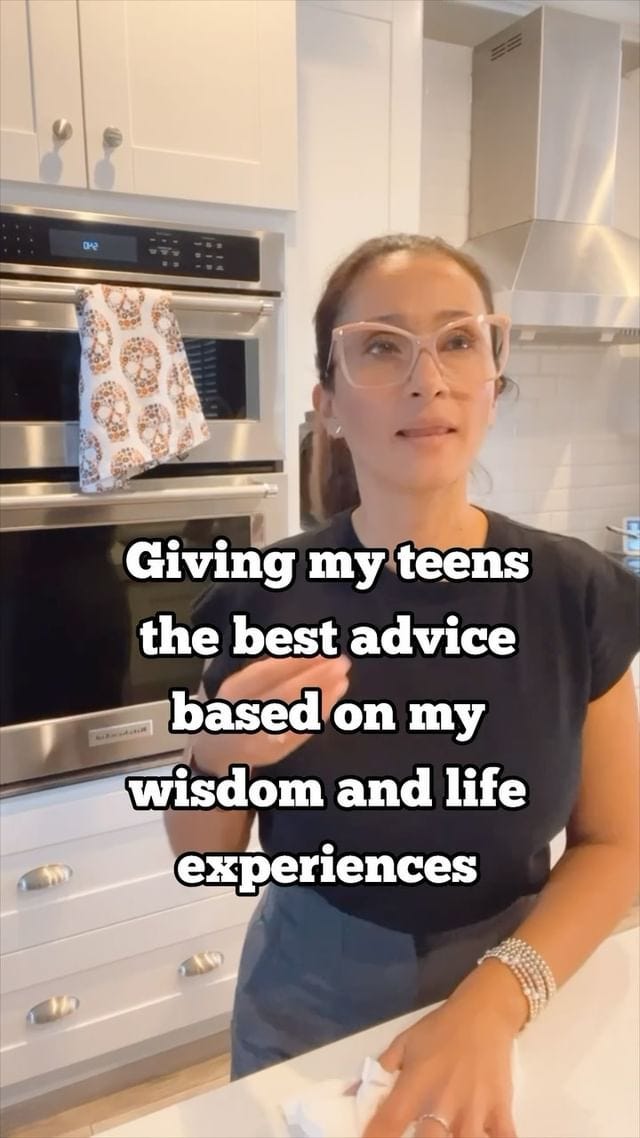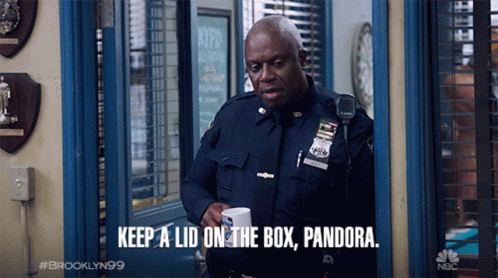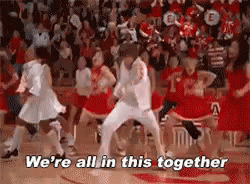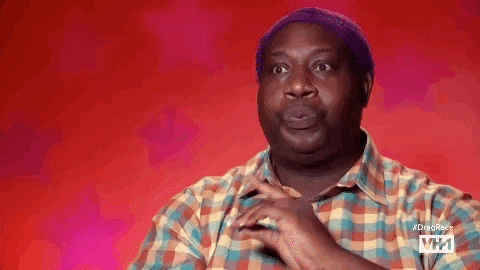There was a minute when I thought the book that the O.G. “Mean Girls” sourced from was about my middle school experience. In about 6th or 7th grade, some grad students from Northwestern University came to my school to meet with us after hours in the library so they could take notes while we girls ate snacks and discussed why we were all being so awful to each other.
It was much the same stuff from the movie—three-way phone call bombing, “accidentally” letting each other see nasty things we’d written about each other in our notebooks, taking turns being the one on the outs from your main friend group while you hopefully/shamefacedly tried to approach another group of interim friends in the meantime. Just like in the movie, we started off by discussing one girl in particular, and then, to spice things up, she joined the group.
It was a little bit of a letdown to watch the movie and realize that this type of experience was fairly universal and not limited to our tiny Catholic school in Evanston, IL. We thought we had invented being so awful that we would be studied by academics. But a bright side of “Mean Girls,” was that at least even if it wasn’t about just us, the movie would at least shine a light on this type of strategic, pointless cruelty and eliminate it forever.
…
Now, normally, I think it’s rude when more experienced parents do the “just wait; it gets worse” thing to parents with younger kids. It’s dismissive and demeans the current phase, which has its own challenges. There is no easy phase. Some phases are more straightforward than others. They say, “Bigger kids, bigger problems,” but also, many bigger kids can do things for themselves, articulate their feelings, and even be helpful and fun to talk to.
But then there’s middle school.
I remember when I was on the school board of our PreK-8 school when both my kids were in elementary school. The 6th-grade moms had so many questions, problems, and issues! We could go home early if it wasn’t for them bringing up so many points with the administration. Now I know. That wasn’t them being a bunch of Karens with their random bunch of bad kids: that was the grade. Now it’s me telling tales of out-of-pocket tweens to elementary school parents who probably are thinking “What is with these kids? How did the parents let them get this way?”
Something happens when tweens hit a certain grade (sometimes older or younger than 6th, depending on the school/kids), and they start gravitating toward the kind of behavior and mindsets we hoped we’d never have to deal with after our first go-around and if you’re not ready for it, it’s a little breathtaking.
I realize now I kind of assumed that if we endured a hard time in adolescence ourselves, we could learn from those experiences and save our kids (and us!) from the heartache of them going through it the same way. If we poured enough emphasis on kindness, justice, doing the right thing, self-confidence, and the spirit of giving to our little kids, it would inoculate them and protect them from the hard transitions to come and make them grateful for what they have and stand up to peer pressure. If we told them enough stories about how kids were mean to us when we were young (or how we were mean to other people) they would hear us and avoid those pitfalls.
But just because “Mean Girls” got made and because we shared our own truths doesn’t mean that kids stopped being mean to each other or wanting to ingratiate themselves to toxic alpha-types. If anything, they’ve just found new ways to be mean to each other, leaving a record no less via group chats or social media or even worse. I have a friend whose child received an electronic communication before the school year started from her former besties alerting her that they were no longer friends and would not be throughout the school year. How do you coach your child through this? Even if you dump all the platitudes in the world on your kid in this case, and even if they agree with you that they’re better off without these shitty friends, as a parent, you’re left wondering what type of people raised these nasty little b’s, if they know what their b kid is doing and if so, why these parents are allowed to exist. And, of course, if one of your girls is the nasty b, you wonder what the hell went wrong.
But it’s not only girls, of course. I had been promised, as a mother of sons, that this would be the age where it became overall easier to raise boys than girls. If I ever had that feeling, it lasted maybe about a week until I began to be aware of the things 6th-grade boys say to each other.
They say responsible parents should check in on what their kids are texting their friends about. I guess that’s true, but do you know what a big downside of that is? Learning what your kids’ friends are texting them.
Even if you’ve succeeded in raising a sensitive, kind, empathetic kid who maintained those qualities through preteen-dom, you can’t say the same about all his classmates and friends. I hate seeing middle school boys communicating to each other using the word “fuck” fully typed out (among many other online communications I strongly disapprove of.) But what are you going to do, text your kid’s friend’s moms and tell on them? Are you a narc? Are you going to blow up your kid’s trust so early over something relatively minor?1 No, so you just sit there and think about how your kid’s classmate, who is barely big enough to sit in the front seat, is texting jokes about sending nudes and using slang they definitely have not earned.
Another mom with two boys told me that in her experience, 6th-7th grade is the worst stage of parenting life and that it’s especially tender when it’s your firstborn out there. This is true. My firstborn son is a summer birthday kid, so the older kids in his class who happen to have older siblings might as well be in college in terms of their worldliness and fearlessness. Sometimes, it’s easy to villainize these more mature kids when you have a more innocent baby on your hands, but I have a younger son on deck, just waiting to be one of these kids in a few years, so I try to keep some perspective. Everything my firstborn sees and hears primes his brother so that when it’s his age I’m sure he will absolutely dazzle his peers with everything he’s learned about bigger kids.
“I’m not saying that it’s fine,” this mom of two boys said about the 6th-grade Bermuda Triangle of discernment and kindness. “It’s not.” But it’s the way so many of these kids can be at this age. I am told this is the age when kids test out boundaries and try things out for shock value. I know it’s typical, but still the phrase “Just middle schoolers being middle schoolers” dances pretty close up on the line of “Just boys being boys.”
But it does help to realize, as a parent, that you can’t do much to a kid from ages 0-8/9 to ensure they’ll get through the next few years unscathed by their own changing environments and selves. You have to just hope your own kid will have decent judgment much of the time and that the times they don’t, it will be low stakes. You have to let go of the idea that if your child succumbs to impulse or hurts someone’s feelings or does something that makes you cringe hard, it’s not because you personally didn’t teach them hard enough not to do that. If they end up getting their feelings hurt by some queen bee, it’s not because you didn’t remind them enough that they are too good for this shit.
I’m still working on believing this myself, but allegedly, your child learning to make mistakes — even if they are messier or dumber or crueler than you would have ever imagined — is not necessarily a sign you personally receive an F on raising a good human. I got some eloquent words of advice from a teacher-mom a few weeks ago that I hold dear to my heart: “It’s just a shitty age.” Honestly, it helped.
If you have kids who survived modern middle school and have any witchy advice for parents on how to get through it without taking it so damn personally or just perspective they wish they had known ahead of time, I welcome it.
As for educators, every time you send home an admonishment from school on something the 6th graders have been doing, I wish you could include some sort of scale indicating whether the incident in question is among the worst you’ve ever seen or basically some version of something that happens every year. Are the kids using A.I. deepfakes to set each other up for social death online (something another educator friend told me she witnessed in her district), or is it more like laughing loudly during someone’s classroom presentation? Neither is great, but there are some differences between being regular boorishness and actual espionage.
Anyway, if there is one nice thing about raising middle schoolers, it’s that teenagers seem incredibly sweet in comparison.
End credits
Thanks for reading Evil Witches, a newsletter for people who happen to be mothers. New here? Here’s what the newsletter is all about. If you have any questions, feedback, or suggestions for future issues, you can reply directly to this email or leave them in the comments.
Our Instagram, curated by Carly O., lives here. The entire Evil Witches archives live here: check them out if you’re new.
If you are not already a paid subscriber, I hope you think about joining us. You sponsor ad-free and referral-free work like what you see today and get access to subscriber-only content, including intimate, funny and helpful threads.
Otherwise, please consider giving us a shout on social media, forwarding this to a friend, or buying someone a gift subscription!
One witchy thing 🐛
In this case, I delegated the checking of messages to my husband, who was a 6th-grade boy himself once and has more of a forgiving idea of what they’re like vs. what I think they should be like.









Well, this scared the shit out of me, Claire. Thank you? (But also, thank you. My incredibly easygoing, sweet, chill 9yo is changing before our eyes -- she has taken to screaming at us almost daily and then clinging to me 24/7 -- and when my husband asked me, the night before last, "What the actual fuck?" all I could say was, "I think she's becoming a tween now.") I really need to hear things like "it's not because you didn't teach them hard enough" and "it’s not because you didn’t remind them enough that they are too good for this shit." I feel like I need to write that somewhere fairly permanent, so I don't forget.
I had a totally different middle school experience, and so has my 14 year old enby. I was bullied really badly in 5th grade so by the time I got to middle school I had no fucks left to give about what other kids thought. I learned, I had semi-stable friend groups, I volunteered with the Mondale-Ferarro campaign. I did music and theater and art. It was actually way better than high school, which I left early for college because between the Heathers culture and the rape culture it was freaking awful. I think my elementary experience was part of what made it different for me.
My kid is queer, out, and has a great group of supportive mostly queer friends, and has some teachers they love and is in advanced theater which is like a pile of sweet hyperactive puppies. I did all their makeup in one crazed afternoon and it was a blast. I didn't send my kid into middle school with the expectation that it would suck because my experience was so non-normative. But they also have a really different landscape. They're a quarantine kid - half of 4th and all of 5th was online. It gave them a chance to develop as an individual without so much gender and behavior policing. They started with a stronger sense of self in middle school than I did. They also do better with the multi-class format than the one teacher format, by far.
It has not been without challenges. The US, my state in particular, does not give a flying fuck about neurodivergent kids, so it often comes down to either individual teachers or me waving my PhD in the face of the district and threatening legal action. Some teachers suck and nobody does anything about it. There's no real support for ADHD and Dyslexic kids beyond accommodations, and the teachers ignore them half the time. My kid has struggled with anxiety and depression over friends being in bad home situations, the world being generally on fire, loss and grief, and struggling with executive function as we were slow to get the ADHD diagnosis (mom guilt ACTIVATE!).
I guess I see a lot of the problems with middle school as systemic as much as social. Yes, my kid can be an asshole on a regular basis due to hormones, neural remodeling, sensory overload, or just general teen-ness. But I think the challenge for us as parents is to really step back and let them lead as much as is safe and sane. Teens are not overgrown kids and they are not immature adults. They are in a distinct developmental stage, the hallmarks of which include a major remodel of the brain (which is mostly responsible for weird behavior, not hormones), a growing awareness of impending adulthood, and a very developmentally health and necessary (and painful for parents) switch of focus from parents to peers. They are risk-prone for important developmental reasons which is a bitch to grapple with. The rules and limitations of childhood WILL NOT WORK and need to be adjusted on an ongoing basis. This includes screen time and socials, bedtimes, food rules (if you do those - I don't), and a reassessment of what is considered general teen-ness and what is genuine assholeness that needs to be addressed.
All this to say, your kid's middle school experience is not set in stone. Magnet schools can be great (if your'e in the US) and provide kids with a peer group that is less likely to descend like a pack of rabid hyenas. Talk to other parents and educators in your district and get the vibe. Teenagers are freaking awesome--it's on us to get past the incredible butthurt that comes with not being as needed, respected, or loved on as we are used to by our younger kids. The feelings are real, but they are not the teen's fault. It's a feature, not a bug. /Ted Talk